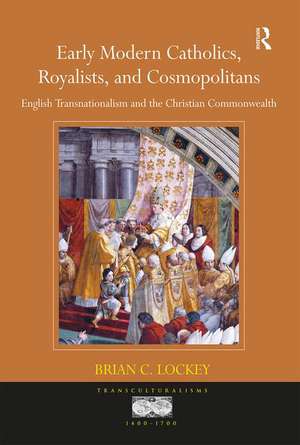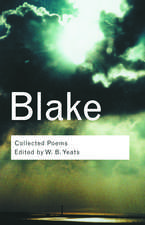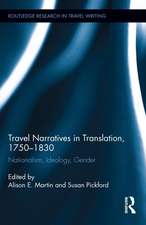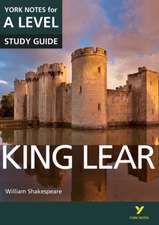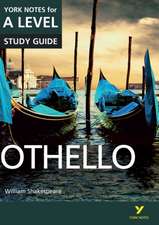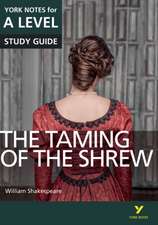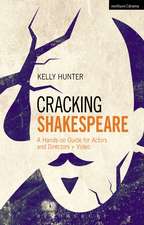Early Modern Catholics, Royalists, and Cosmopolitans: English Transnationalism and the Christian Commonwealth: Transculturalisms, 1400-1700
Autor Brian C. Lockeyen Limba Engleză Paperback – 24 mai 2017
| Toate formatele și edițiile | Preț | Express |
|---|---|---|
| Paperback (1) | 241.15 lei 43-57 zile | |
| Taylor & Francis – 24 mai 2017 | 241.15 lei 43-57 zile | |
| Hardback (1) | 1015.13 lei 43-57 zile | |
| Taylor & Francis – 28 iun 2015 | 1015.13 lei 43-57 zile |
Din seria Transculturalisms, 1400-1700
-
 Preț: 436.14 lei
Preț: 436.14 lei -
 Preț: 387.20 lei
Preț: 387.20 lei -
 Preț: 390.46 lei
Preț: 390.46 lei -
 Preț: 489.26 lei
Preț: 489.26 lei -
 Preț: 385.74 lei
Preț: 385.74 lei -
 Preț: 385.62 lei
Preț: 385.62 lei -
 Preț: 381.92 lei
Preț: 381.92 lei -
 Preț: 416.22 lei
Preț: 416.22 lei - 25%
 Preț: 324.16 lei
Preț: 324.16 lei -
 Preț: 489.26 lei
Preț: 489.26 lei - 18%
 Preț: 1111.40 lei
Preț: 1111.40 lei -
 Preț: 409.48 lei
Preț: 409.48 lei -
 Preț: 381.81 lei
Preț: 381.81 lei -
 Preț: 474.73 lei
Preț: 474.73 lei - 17%
 Preț: 258.70 lei
Preț: 258.70 lei - 30%
 Preț: 847.73 lei
Preț: 847.73 lei -
 Preț: 469.34 lei
Preț: 469.34 lei -
 Preț: 469.34 lei
Preț: 469.34 lei -
 Preț: 498.91 lei
Preț: 498.91 lei - 18%
 Preț: 1113.95 lei
Preț: 1113.95 lei -
 Preț: 449.41 lei
Preț: 449.41 lei -
 Preț: 429.05 lei
Preț: 429.05 lei -
 Preț: 388.08 lei
Preț: 388.08 lei -
 Preț: 411.42 lei
Preț: 411.42 lei - 18%
 Preț: 1054.71 lei
Preț: 1054.71 lei - 28%
 Preț: 821.13 lei
Preț: 821.13 lei -
 Preț: 469.34 lei
Preț: 469.34 lei
Preț: 241.15 lei
Preț vechi: 303.89 lei
-21% Nou
Puncte Express: 362
Preț estimativ în valută:
46.16€ • 50.16$ • 38.80£
46.16€ • 50.16$ • 38.80£
Carte tipărită la comandă
Livrare economică 21 aprilie-05 mai
Preluare comenzi: 021 569.72.76
Specificații
ISBN-13: 9781138104471
ISBN-10: 1138104477
Pagini: 388
Dimensiuni: 156 x 234 x 27 mm
Greutate: 0.45 kg
Ediția:1
Editura: Taylor & Francis
Colecția Routledge
Seria Transculturalisms, 1400-1700
Locul publicării:Oxford, United Kingdom
ISBN-10: 1138104477
Pagini: 388
Dimensiuni: 156 x 234 x 27 mm
Greutate: 0.45 kg
Ediția:1
Editura: Taylor & Francis
Colecția Routledge
Seria Transculturalisms, 1400-1700
Locul publicării:Oxford, United Kingdom
Cuprins
Contents: Introduction: Catholics, royalists, cosmopolitans: writing early modern England into the Christian commonwealth. Part I: Papal supremacy and the citizen of the world; Border-crossing and translation: the cosmopolitics of Edmund Campion, S.J., Anthony Munday, and Sir John Harington; Cosmopolitan romance: Philip Sidney, Edmund Spenser, and the fiction of imperial justice; Traitor or cosmopolitan? Captain Thomas Stukeley in the courts of Christendom. Part II: Part II introduction: Royalists; From foreign war to civil war: the royalist reinvention of the Christian commonwealth; The Christian nation and beyond: Camões's Os LusÃadas and John Milton’s Cosmopolitan Republic; Royalist turned cosmopolitan: Aphra Behn’s portrait of the prostituted sovereign. Conclusion: the public sphere and the legacy of the Christian commonwealth; Works cited; Index.
Notă biografică
Brian C. Lockey is Professor of English Literature at St. John's University, USA. He is also the author of Law and Empire in English Renaissance Literature (Cambridge, 2006).
Recenzii
"Lockey clearly emphasizes that 'English cosmopolitanism was first and foremost traditional and conservative' (314), although it served as a challenge to the emerging national narratives, and it contained the potential to be stripped of its more obviously conservative manifestations. It could be employed, for example, by writers who were working in the Protestant tradition, who introduced a transnational approach inherited from 'a prohibited ideology' (315). His monograph offers a careful exploration of early modern texts and a thought-provoking read for scholars working in the discipline of history as well as English literature."
- Katy Gibbons, University of Portsmouth, Renaissance Quarterly.
"...it is wonderfully nuanced and never repetitive. More than that, it is resonant in ways which—given the long gestation of academic monographs – its author could hardly have predicted. At a time when most British and American academics find themselves at odds with the nationalistic discourse of their respective countries, ideals of transnational engagement have never seemed more topical or more appealing. One can applaud Lockey’s work for its timeliness."
- Alison Shell, University College London, UK
"Ambitiously spanning two centuries and numerous source texts, Brian Lockey’s Early Modern Catholics, Royalists and Cosmopolitans is a thorough and thought-provoking study into a newly emerging discourse on cosmopolitanism within England in the sixteenth and seventeenth centuries... Well-evidenced and intriguing, Lockey has produced a work that will be approached in years to come from many different disciplines. This book will be invaluable to any critics of religious identities, nation, and selfhood within the early modern period." - Sophie Jane Buckingham, University of East Anglia, Renaissance Studies
"The book as a whole is lively, interesting, and brings a welcome internationalist perspective to the study of early-modern English literature. Throughout, there is a welcome emphasis on Latinity (Osorio, Haddon, Campion) and on translation (Harington, Fanshawe) as parallel vehicles of international communication within Christian Europe... Each of [these chapters] teases out internationalist concerns within the works they cover. At the very least they remind us that even the most Protestant fictions in early modern England were not as straight-forwardly nationalist as recent scholarship might lead us to think." - Paul Arblaster, Saint-Louis University, Brussels, Reformation
"Lockey clearly emphasizes that 'English cosmopolitanism was first and foremost traditional and conservative' (314), although it served as a challenge to the emerging national narratives, and it contained the potential to be stripped of its more obviously conservative manifestations. It could be employed, for example, by writers who were working in the Protestant tradition, who introduced a transnational approach inherited from 'a prohibited ideology' (315). His monograph offers a careful exploration of early modern texts and a thought-provoking read for scholars working in the discipline of history as well as English literature." Katy Gibbons, University of Portsmouth, Renaissance Quarterly.
"Lockey’s book is an important one that, in its pairing of canonical texts with less- studied texts from both England and the Continent, makes a valuable contribution to current conversations about religion, national identity, and political culture in early modern Europe." - Laurie Ellinghausen, Journal for Early Modern Cultural Studies
"Early Modern Catholics, Royalties and Cosmopolitans powerfully reveals that cosmopolitanism is a much earlier phenomenon than seventeenth-and-eighteenth century critics have suggested. This is a well-argued and innovative book, generous in its attention to detail and its concern to establish clarity of purpose for its readership. Lockey ranges across genres, geograhies, and centuries with eloquent ease, alert to both the telling detail and the killing point. This is a book that will be invaluable to early modern academics interested in nation, religion, and identity formation, broadly conceived. It is also a book of enduring and impressive scholarship, as well as a very good read." - Claire Jowitt, University of East Anglia, The Sixteenth Century Journal
- Katy Gibbons, University of Portsmouth, Renaissance Quarterly.
"...it is wonderfully nuanced and never repetitive. More than that, it is resonant in ways which—given the long gestation of academic monographs – its author could hardly have predicted. At a time when most British and American academics find themselves at odds with the nationalistic discourse of their respective countries, ideals of transnational engagement have never seemed more topical or more appealing. One can applaud Lockey’s work for its timeliness."
- Alison Shell, University College London, UK
"Ambitiously spanning two centuries and numerous source texts, Brian Lockey’s Early Modern Catholics, Royalists and Cosmopolitans is a thorough and thought-provoking study into a newly emerging discourse on cosmopolitanism within England in the sixteenth and seventeenth centuries... Well-evidenced and intriguing, Lockey has produced a work that will be approached in years to come from many different disciplines. This book will be invaluable to any critics of religious identities, nation, and selfhood within the early modern period." - Sophie Jane Buckingham, University of East Anglia, Renaissance Studies
"The book as a whole is lively, interesting, and brings a welcome internationalist perspective to the study of early-modern English literature. Throughout, there is a welcome emphasis on Latinity (Osorio, Haddon, Campion) and on translation (Harington, Fanshawe) as parallel vehicles of international communication within Christian Europe... Each of [these chapters] teases out internationalist concerns within the works they cover. At the very least they remind us that even the most Protestant fictions in early modern England were not as straight-forwardly nationalist as recent scholarship might lead us to think." - Paul Arblaster, Saint-Louis University, Brussels, Reformation
"Lockey clearly emphasizes that 'English cosmopolitanism was first and foremost traditional and conservative' (314), although it served as a challenge to the emerging national narratives, and it contained the potential to be stripped of its more obviously conservative manifestations. It could be employed, for example, by writers who were working in the Protestant tradition, who introduced a transnational approach inherited from 'a prohibited ideology' (315). His monograph offers a careful exploration of early modern texts and a thought-provoking read for scholars working in the discipline of history as well as English literature." Katy Gibbons, University of Portsmouth, Renaissance Quarterly.
"Lockey’s book is an important one that, in its pairing of canonical texts with less- studied texts from both England and the Continent, makes a valuable contribution to current conversations about religion, national identity, and political culture in early modern Europe." - Laurie Ellinghausen, Journal for Early Modern Cultural Studies
"Early Modern Catholics, Royalties and Cosmopolitans powerfully reveals that cosmopolitanism is a much earlier phenomenon than seventeenth-and-eighteenth century critics have suggested. This is a well-argued and innovative book, generous in its attention to detail and its concern to establish clarity of purpose for its readership. Lockey ranges across genres, geograhies, and centuries with eloquent ease, alert to both the telling detail and the killing point. This is a book that will be invaluable to early modern academics interested in nation, religion, and identity formation, broadly conceived. It is also a book of enduring and impressive scholarship, as well as a very good read." - Claire Jowitt, University of East Anglia, The Sixteenth Century Journal
Descriere
Early Modern Catholics, Royalists, and Cosmopolitans looks at how the perspective of sixteenth-century English Catholic exiles and seventeenth-century English royalist exiles helped to generate a form of cosmopolitanism that was rooted in, but also transcended, contemporary religious and national identities. Lockey considers the experiences of English exiles and the influence that they had on writers such as Edmund Spenser, Sir Philip Sidney, Anthony Munday, Sir John Harington, Sir Richard Fanshawe, John Milton, and Aphra Behn.
